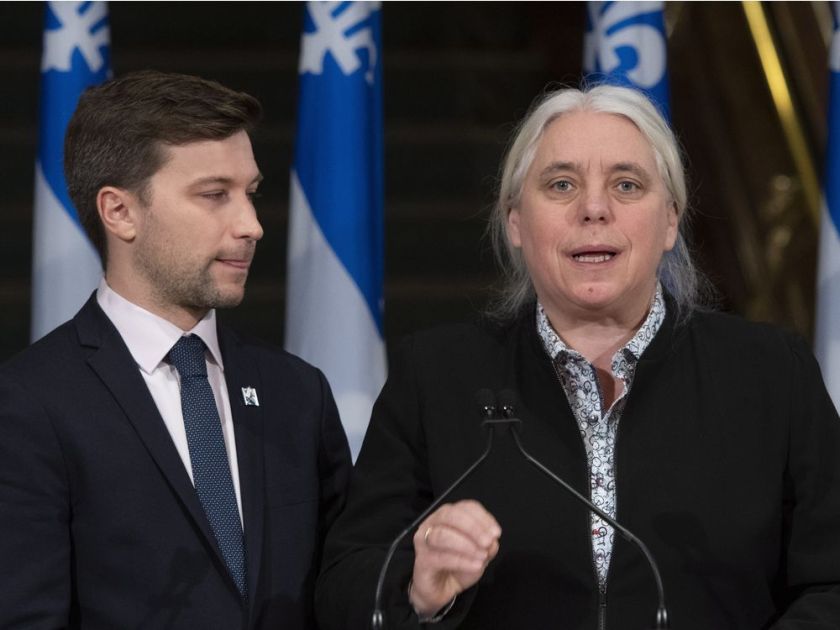Québec solidaire has had a few interesting, successful and contradictory years. Born in 2006 with militantly leftist and sovereignist principles, the party has nonetheless captured the political attention of a younger generation that, according to most polling and research, has a lot of time for the former but much less for the latter.
It is home to people like Sol Zanetti, an indépendentiste so committed he might as well have the word tattooed across his bald pate. And yet I have English friends who support the party only because it is a loud, populist and ballsy leftist redoubt.
The party will eventually have to deal with this yawning contradiction. (Want to see an anglophone Québec solidaire supporter curl up into a ball? Remind her that she supports a separatist party.)
Right now, though, Québec solidaire is in the process of saving Quebec from itself. With all of 10 MNAs, and without the benefit of an Official Opposition budget, the party has been a singularly crucial bulwark against the transgressions of François Legault’s Coalition Avenir Québec government.
First, a caveat. I don’t think Québec solidaire can or should form a government under its current platform. The party’s instinct to nationalize everything in sight, including the province’s mining and forestry industries, along with strategic “large enterprises,” is but one batty idea typical of the doctrinaire, overreaching left. Its platform also includes dangerously vague language as to the limits it would put on Quebecers’ property rights.
But in opposition, the party has been exactly what the Liberals and the Parti Québécois haven’t: effective. On the environment, for example, Québec solidaire has applied the most conspicuous pressure on Legault’s government regarding climate change. Its sounding the alarm on the issue helped mobilize the tens of thousands of students who took to the streets March 15.
RELATED
Apparently, the government was watching and listening. Within two weeks, the CAQ publicized a set of 18 policy proposals to ban single-use plastic bags, impose deposits on water bottles and fight over-packaging, along with measures to reduce pesticide use and spur the use of electric vehicles and renewable energy.
Lip service? Possibly — these are just proposed additions to the CAQ platform, to be voted upon at the party’s general meeting in May. Nevertheless, by dint of its own insistence, Québec solidaire obliged the CAQ to pay attention.
Behind Quebec solidaire’s efficacy on the environmental file are its leaders. It is the only opposition party with actual, non-interim leadership. And it probably helps that on the environment, Quebecers tend to tilt heavily in Quebec solidaire’s direction, at least according to a SOM poll conducted in the wake of the Montreal march.
This isn’t the case with the CAQ’s Bill 21. According to a recent Léger poll, 82 per cent of Quebecers are in favour of the onerous bill that would see religious symbols banned from the bodies of those in “positions of authority.”
The Liberal opposition came out against it, in keeping with their previous policy. But the party’s record on these matters is not unblemished: sections of its 2017 law on state neutrality requiring that government services be received with face uncovered were suspended by Quebec Superior Court because they would cause “irreparable harm” to “Muslim women.”
Meanwhile, the Parti Québécois said the CAQ’s bill didn’t go far enough. “No penalty for recalcitrants” who dare wear kippahs to work, tisk tisked PQ interim leader Pascal Bérubé.
Quebec solidaire went through a comparatively tortuous internal debate on the subject, particularly on the issue of the niqab, before making its new stance known: there should be no prohibitions on wearing religious symbols, while face coverings should be prohibited in the civil service. It would not ban the receipt of government services by those whose faces are covered for religious reasons, except when necessary for identification or security.
May the rest of Quebec follow Quebec solidaire’s lead on this subject.




























